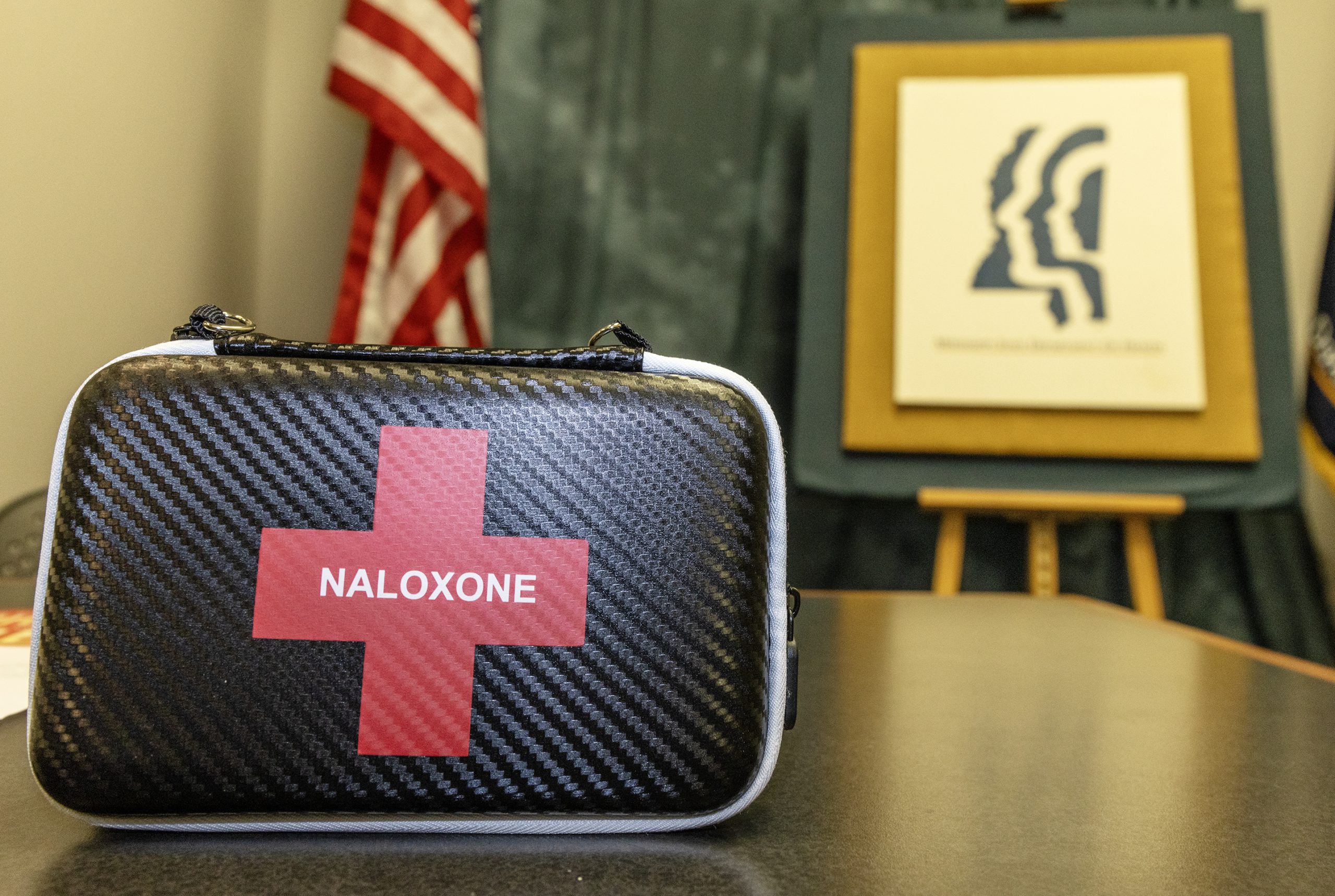Schools, community organizations and hospitality groups now have access to free bulk naloxone, an opioid overdose reversal drug, thanks to recent state legislation and federal funding.
In the first two months since the new law went into effect, the Mississippi Department of Health has distributed 3,470 boxes of bulk naloxone. That’s more than it distributed in the prior 10 months combined.
The Legislature passed House Bill 1137, authored by Rep. Fabian Nelson, D-Jackson, and a freshman legislator, in the spring. Nelson said the impetus for the bill, which expands what types of groups can receive the overdose reversal drug, was a conversation with a local advocate who showed him the need for more access across the state.
Nelson worked closely with Department of Mental Health Executive Director Wendy Bailey to draft the legislation.
The Department of Mental Health also distributes naloxone through a program called Stand Up Mississippi. The focus of that program has been on law enforcement and first responders, Bailey said.
“There was a core group that was missing there – nonprofits, recovery support groups that really needed to have access to more than just one dose,” said Bailey.
Nelson teamed up with House Public Health and Human Services Chair Sam Creekmore, R-New Albany, and Senate Judiciary A Chairman Brice Wiggins, R-Pascagoula, to shepherd the legislation – which allows community organizations, educational groups and any other “high-risk opioid overdose touchpoint” to receive the drug – through the process. The bill passed both the House and Senate unanimously.
“If we can save one person, we’ve done our job,” said Nelson.
As the father of teenagers, Nelson said he believes schools in particular need access to the drug.
“I’m telling my district, and Hinds County School District, we need this in the school. Because what’s happening is kids are bringing edibles to school and some are laced with fentanyl,” he said. “If a child overdoses at school and there’s no Narcan, by the time EMT gets there, the child could’ve passed away.”
READ MORE: Millions in opioid settlement dollars are coming to Mississippi. Here’s what you need to know.
He said he also keeps Narcan at his home.
“I have three sons – three teenagers – I know what my kids are doing, I don’t think my kids are doing drugs, but I have Narcan at home because you never know what they may get from a friend.”
Hundreds of Mississippians die every year from opioid overdoses, and the epidemic has claimed the lives of tens of thousands more nationwide.
Ocean Springs School District placed an order for naloxone thanks to the new state law.
Jessie Galloway, the chief of the district’s campus police, said after an incident involving a near overdose at a neighboring school district, he thought it was important the district be prepared in case something similar occurred.
“Due to the amount of vapes, drugs, and drug paraphernalia becoming increasingly available to the youth, we felt we should be proactive and prepared in the event of an accidental overdose of a student or other individual,” he said in a statement to Mississippi Today. “In addition to our campus duties, we come in contact with many outside individuals attending various school events and having a medication like naloxone on-hand can make the difference in saving a life …”
The Gulf Coast is the hardest hit region of Mississippi in the opioid crisis and represents an outsize portion of Mississippi’s suspected overdose deaths, emergency medical services naloxone administrations and drug-related arrests.
To request naloxone kits for an individual or organization, visit the Department of Health’s site here.

